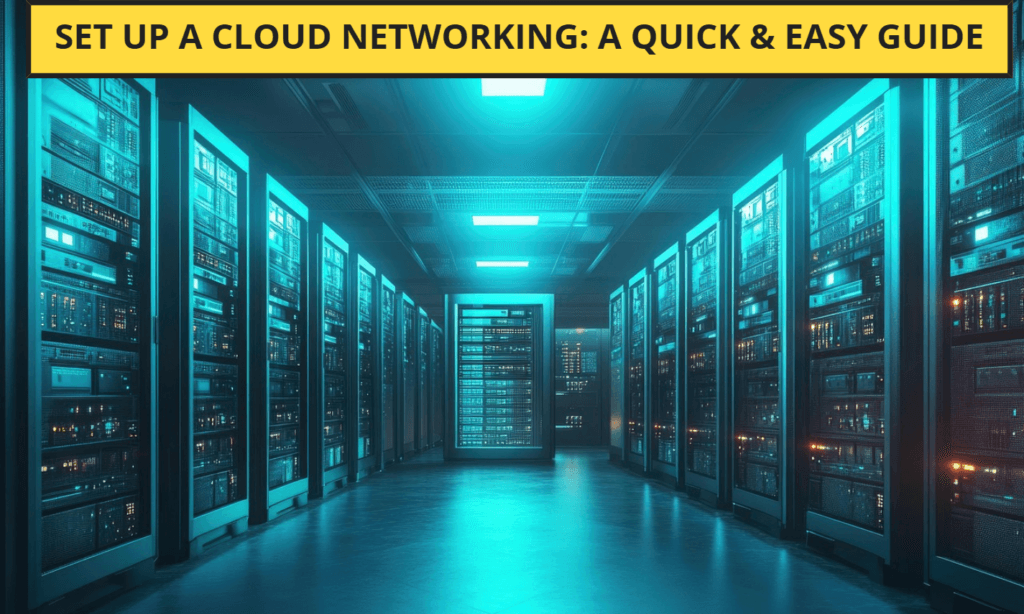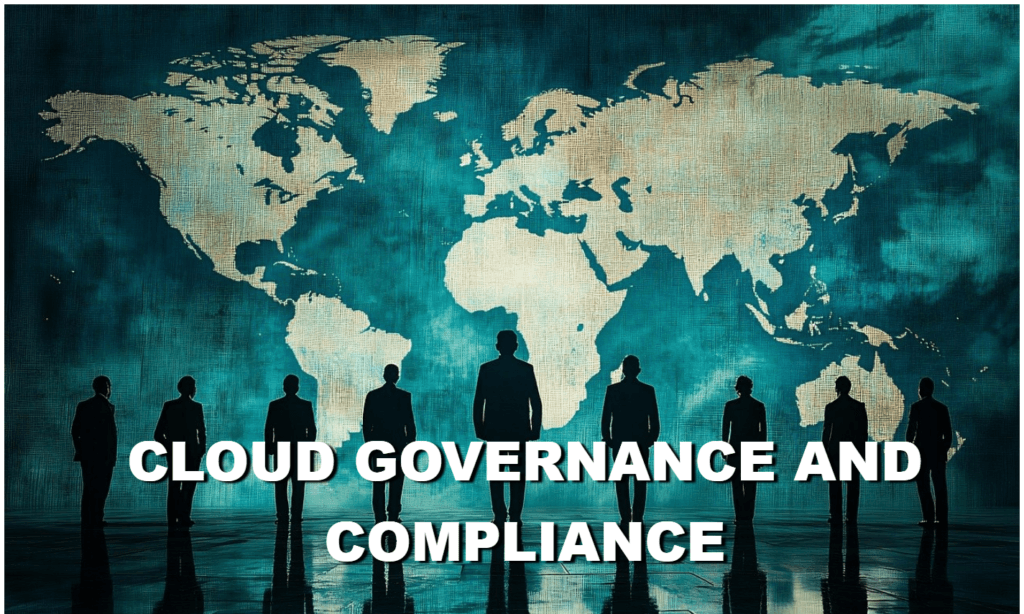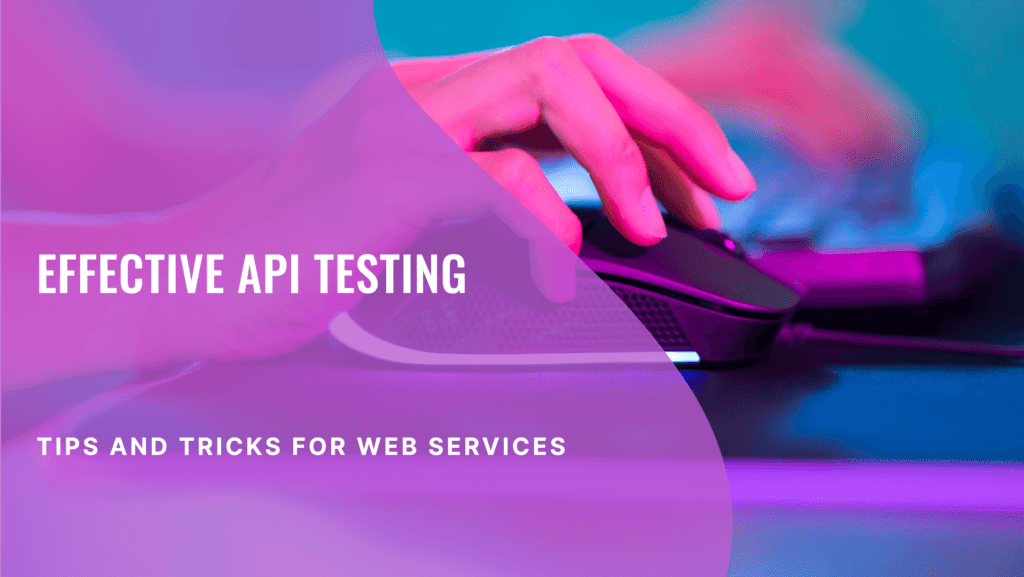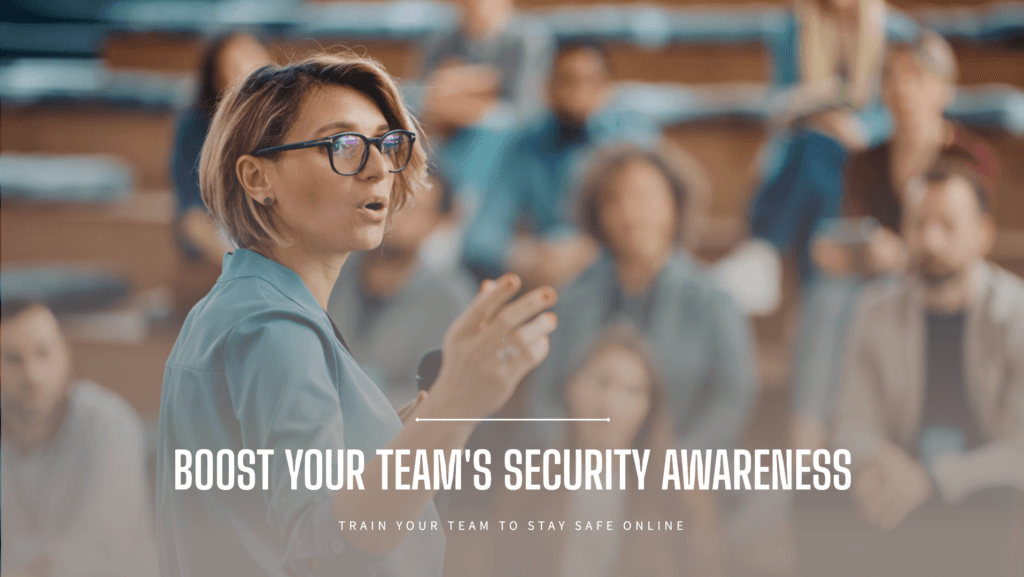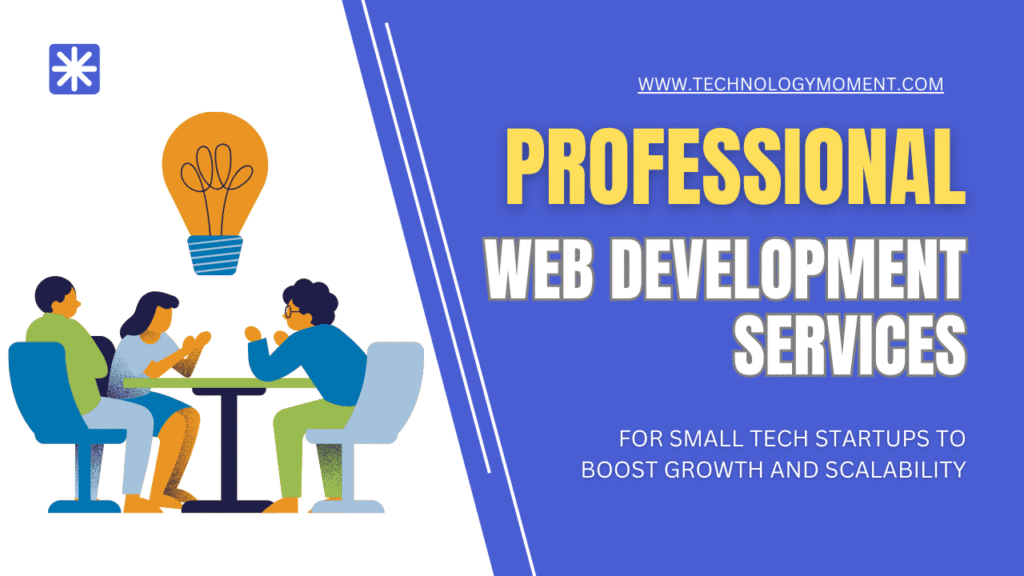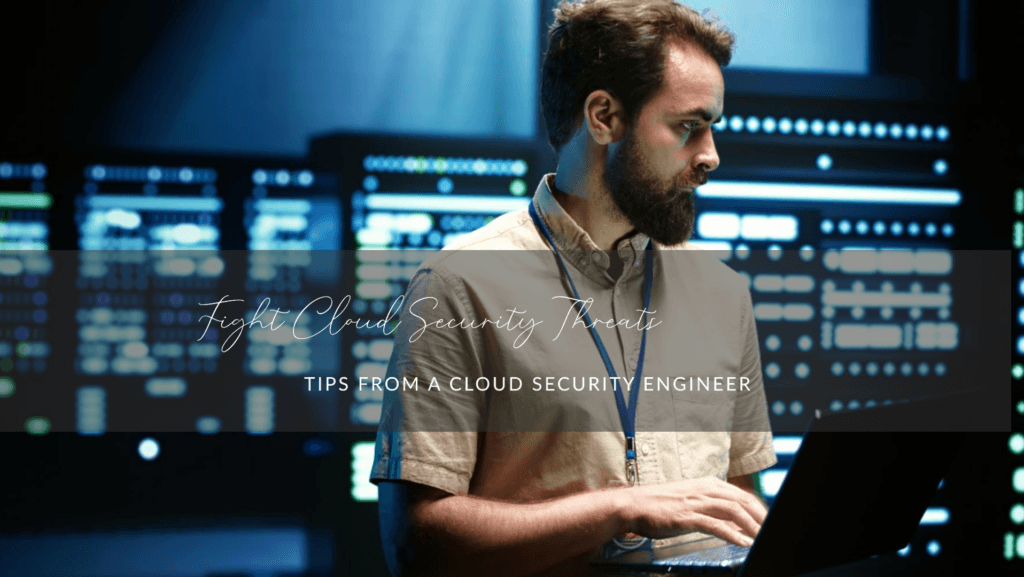Welcome to Technology Moment, In today’s rapidly evolving digital landscape, cloud security is a top priority for businesses of all sizes. As more organizations transition their data and operations to the cloud, the demand for skilled professionals who can safeguard sensitive information continues to rise. Enter the Certified Cloud Security Professional (CCSP) — a prestigious credential that validates expertise in cloud security architecture, operations, and governance. In this blog, we’ll explore what the CCSP certification entails, why it’s essential for your cybersecurity career, and how it empowers professionals to protect cloud environments from emerging threats.
This is where cloud security professionals come into the picture. They play a crucial role in safeguarding cloud environments, protecting sensitive data, and mitigating potential cyber risks. As the demand for skilled cloud security experts grows, professional certifications have become essential in validating expertise and setting individuals apart in the competitive job market.
One of the most respected certifications in this field is the Certified Cloud Security Professional (CCSP). Developed by the prestigious (ISC)², in collaboration with the Cloud Security Alliance (CSA), the CCSP is a globally recognized credential designed for IT and security professionals aiming to demonstrate their knowledge and skills in cloud security.
Earning the CCSP certification not only validates a professional’s ability to design, manage, and secure cloud applications and infrastructures but also showcases their commitment to staying ahead in this ever-evolving field. This introduction sets the stage for a comprehensive exploration of CCSP, covering everything from eligibility requirements and exam details to preparation tips and career benefits.
What is CCSP?
The Certified Cloud Security Professional (CCSP) is a globally recognized certification offered by (ISC)² (International Information System Security Certification Consortium) in collaboration with the Cloud Security Alliance (CSA). It is designed for professionals who are responsible for ensuring the secure design, implementation, and management of cloud-based solutions and services.
This certification validates a candidate’s expertise in cloud security architecture, governance, operations, and compliance. It encompasses best practices and guidelines to help organizations protect their cloud environments while maintaining regulatory and legal standards.
Background of CCSP
The need for robust cloud security has become more evident as businesses increasingly migrate their data and applications to the cloud. The partnership between (ISC)² and CSA, two leading organizations in cybersecurity, aims to equip professionals with the advanced knowledge needed to protect these critical cloud resources.
Why CCSP Stands Out
CCSP certification focuses on practical and theoretical knowledge, making it ideal for professionals looking to:
- Demonstrate their cloud security expertise.
- Gain a deep understanding of modern cloud technologies and their associated security risks.
- Lead secure cloud implementations for businesses across various sectors.
It is often considered the “gold standard” for cloud security professionals due to its comprehensive content and focus on current industry challenges.
Core Objectives of CCSP
The CCSP certification ensures that professionals have:
- A strong grasp of cloud computing concepts and architectures.
- The ability to protect sensitive cloud data using security principles.
- Knowledge of compliance regulations and legal implications in cloud environments.
- Expertise in managing secure cloud platforms, applications, and operations.
Who Offers CCSP and How It’s Regulated
- (ISC)²: A global leader in cybersecurity certifications, including the well-known CISSP (Certified Information Systems Security Professional).
- CSA: A pioneer organization focusing on best practices for secure cloud computing.
The combination of these two organizations ensures that the CCSP credential remains up to date with evolving security threats and technological advancements.
The Growing Importance of CCSP
As organizations face increasing data breaches and cloud misconfigurations, having certified professionals becomes crucial. CCSP not only validates your skills but also prepares you for solving real-world cloud security challenges.
Table of Contents
Why Pursue CCSP Certification?
The Certified Cloud Security Professional (CCSP) certification stands out as one of the most sought-after credentials in the field of cybersecurity and cloud security. As organizations increasingly migrate their operations to cloud environments, ensuring the protection of data and infrastructure becomes a top priority. Here’s a detailed look at why obtaining a CCSP certification is a wise investment for professionals in the industry:
1. Industry Demand for Cloud Security Experts: In today’s digital landscape, businesses of all sizes are adopting cloud computing to enhance operational efficiency and scalability. However, this shift also brings a heightened risk of data breaches and cyber threats.
Organizations are actively seeking professionals with the expertise to safeguard sensitive information in the cloud. By earning a CCSP, you demonstrate your ability to design, implement, and manage secure cloud environments, making you a valuable asset to companies worldwide.
2. Validation of Knowledge and Expertise: The CCSP certification validates your advanced technical skills and knowledge in cloud security. It proves that you understand cloud architecture, data protection strategies, application security, and compliance requirements.
Employers often view certified professionals as more credible and reliable because their expertise has been tested and verified by a reputable certification body like (ISC)². This gives you a competitive edge in the job market.
3. Career Advancement Opportunities: Holding a CCSP certification can unlock new career paths and promotions within your organization. Some roles that may open up to you include:
- Cloud Security Consultant
- Security Architect
- Cloud Compliance Manager
- Cloud Operations Specialist
Moreover, organizations often offer better compensation packages to professionals who hold certifications, as they are seen as more knowledgeable and effective in their roles.
4. Higher Earning Potential: Due to the increasing demand for cloud security experts, CCSP-certified professionals often command higher salaries. According to industry reports, cybersecurity experts with cloud security certifications can earn well above the average salaries for IT roles.
Investing in CCSP certification can lead to a substantial return on investment through higher pay and better job opportunities.
5. Professional Networking and Credibility: As a CCSP-certified professional, you become part of a global community of cybersecurity experts through (ISC)². This opens doors to networking opportunities, knowledge sharing, and collaboration on cutting-edge security solutions.
Additionally, earning this credential establishes your credibility and earns you recognition among your peers and industry leaders.
6. Staying Updated with Industry Trends: The CCSP certification program requires continuing education to maintain your credential. This ensures that you stay current with emerging trends, technologies, and threats in the cloud security landscape.
Remaining updated helps you adapt quickly to industry changes and maintain your relevance as a skilled professional.
7. Alignment with Compliance and Regulatory Requirements: Organizations operating in regulated industries (such as healthcare, finance, and government sectors) must comply with strict security standards. A CCSP-certified professional understands how to navigate and implement security controls that meet legal and regulatory requirements, helping businesses avoid penalties and maintain compliance.
8. Enhanced Problem-Solving Skills: The process of preparing for the CCSP exam sharpens your analytical and problem-solving abilities. You’ll learn to evaluate cloud security risks, design robust security architectures, and respond effectively to incidents — all essential skills in today’s threat landscape.
Who Should Get CCSP Certified?
The Certified Cloud Security Professional (CCSP) certification is highly recommended for professionals who are involved in cloud security or looking to advance their careers in this growing field. It’s ideal for individuals working in roles where safeguarding cloud environments, applications, and data is a key responsibility.

Here’s a closer look at the professionals who should consider earning this certification:
- Cloud Security Architects:
These experts design secure cloud systems and are responsible for implementing security frameworks. CCSP validates their ability to create robust security solutions across diverse cloud platforms. - Security Consultants:
Professionals advising organizations on cloud security best practices can greatly benefit from the certification, as it enhances their credibility and expertise in providing actionable recommendations. - Cloud Engineers:
Cloud engineers involved in deploying, managing, and optimizing cloud services need CCSP to ensure they understand secure practices for architecture, data handling, and infrastructure. - Systems Administrators:
Admins managing cloud environments are often tasked with monitoring and ensuring compliance with security protocols. CCSP provides them with advanced knowledge to manage secure cloud systems efficiently. - IT Managers:
For managers overseeing IT operations, gaining CCSP certification allows them to better guide their teams and maintain secure cloud practices while managing business risks. - Risk and Compliance Officers:
Since CCSP covers legal and compliance aspects of cloud security, this certification is valuable for professionals responsible for ensuring adherence to regulatory standards. - Cybersecurity Specialists:
As cloud computing is a critical part of modern IT, cybersecurity specialists can use CCSP to expand their expertise into cloud security frameworks and practices.
In essence, anyone looking to demonstrate their advanced skills in securing cloud environments can benefit from this certification.
Eligibility Requirements for CCSP
To earn the CCSP certification, candidates must meet specific educational and professional experience prerequisites set by (ISC)², the organization behind the certification. Below are the key eligibility requirements:
- Experience Requirements:
Candidates must have a minimum of five years of cumulative, paid work experience in information technology. At least three of these years should be in information security, and one year must be specifically in one or more of the CCSP exam domains, such as cloud architecture, platform security, or compliance. - Substitution for Experience:
If a candidate holds the CISSP (Certified Information Systems Security Professional) certification, they automatically meet the experience requirements for CCSP. - Education Waiver:
- A four-year college degree (or equivalent) can satisfy one year of the required experience.
- Additionally, holding specific certifications recognized by (ISC)² may help waive part of the experience requirement.
- (ISC)² Associate Path:
Candidates who do not yet meet the experience requirements can still take the CCSP exam and become an (ISC)² Associate. They then have six years to accumulate the necessary experience to earn the full certification. - Code of Ethics:
Candidates must adhere to the (ISC)² Code of Ethics, which emphasizes professional integrity, protecting society, and acting responsibly in their security roles. - Exam Requirements:
- Pass the CCSP examination, which consists of 125 multiple-choice questions covering six key cloud security domains.
- Achieve a passing score of 700 out of 1,000 points.
By meeting these requirements and successfully passing the exam, professionals can earn the globally recognized CCSP certification, which validates their expertise in securing cloud environments.
Exam Overview
The Certified Cloud Security Professional (CCSP) exam is designed to test candidates’ knowledge of cloud security architecture, governance, compliance, operations, and application security concepts. Conducted by (ISC)², it evaluates both theoretical understanding and practical problem-solving skills related to cloud security.
Exam Format
- Number of Questions: 125 multiple-choice questions
- Duration: 4 hours (240 minutes)
- Question Types: Primarily scenario-based and knowledge-based questions
- Passing Score: 700 out of 1000 points
Exam Cost
- For candidates in the US: $599
- Prices may vary slightly depending on location and tax regulations.
Language Availability
The exam is available in multiple languages, including English, Japanese, and other select languages, catering to a global audience.
Difficulty Level
The CCSP exam is considered challenging due to its in-depth focus on cloud security. It requires comprehensive knowledge and practical experience in cloud environments, making proper preparation crucial.
Testing Centers and Online Option
- Physical test centers authorized by Pearson VUE
- Online proctored exams are also available for convenience
Re-examination Policy
If candidates fail the exam, they can retake it after a 90-day waiting period. The (ISC)² allows up to three attempts in a year.
Domains Covered in CCSP Exam
The CCSP exam is structured around six key knowledge domains, each representing crucial areas of cloud security. Here’s a detailed breakdown:
Domain 1: Cloud Concepts, Architecture, and Design
- Understanding the fundamental principles of cloud computing
- Designing secure cloud architectures
- Cloud reference models and deployment strategies (IaaS, PaaS, SaaS)
- Evaluating cloud service providers for security
Domain 2: Cloud Data Security
- Data lifecycle management in cloud environments
- Encryption techniques and key management
- Data integrity, classification, and rights management
Domain 3: Cloud Platform and Infrastructure Security
- Assessing and mitigating risks in cloud infrastructure
- Virtualization security best practices
- Securing compute, storage, and network components
- Implementing security controls for hybrid cloud environments
Domain 4: Cloud Application Security
- Secure software development life cycle (SDLC) in cloud applications
- Threat modeling and secure code practices
- Testing, auditing, and monitoring applications
- API security and identity management
Domain 5: Cloud Security Operations
- Incident response and disaster recovery planning
- Monitoring and logging cloud activities
- Automation of security operations
- Vulnerability and patch management
Domain 6: Legal, Risk, and Compliance
- Understanding global legal and regulatory frameworks for cloud environments
- Risk assessment and mitigation strategies
- Privacy and compliance requirements (GDPR, HIPAA, etc.)
- Third-party risk management
How to Prepare for the CCSP Exam
Preparing for the CCSP (Certified Cloud Security Professional) exam requires a well-structured and focused approach. Below are some effective strategies to help you get ready:
1. Understand the Exam Objectives
- Familiarize yourself with the six core domains covered in the CCSP exam:
- Cloud Concepts, Architecture, and Design
- Cloud Data Security
- Cloud Platform and Infrastructure Security
- Cloud Application Security
- Cloud Security Operations
- Legal, Risk, and Compliance
- Download and review the official (ISC)² CCSP Exam Outline to ensure you’re covering all the necessary topics.
2. Use Official Study Materials
- The CCSP Official Study Guide by (ISC)² is an essential resource for learning all exam topics comprehensively.
- The CCSP Official Practice Tests provide sample questions to help you understand the exam format.
3. Take Training Courses
- Enroll in (ISC)² Authorized CCSP Training Programs offered online or in person.
- Consider training platforms like Coursera, Udemy, or Cybrary for structured learning modules.
- Boot camps offer intensive learning sessions to cover the entire syllabus quickly.
4. Join Study Groups
- Engage with peers preparing for the exam by joining online forums such as LinkedIn groups, Reddit communities, or (ISC)²’s official forums.
- Group discussions can provide fresh perspectives and help clarify difficult concepts.
5. Practice, Practice, Practice
- Solve as many practice tests as possible to simulate the exam environment.
- Focus on understanding why answers are correct or incorrect rather than simply memorizing facts.
6. Time Management
- Create a study schedule and stick to it.
- Allocate more time to complex domains like Cloud Data Security and Legal/Risk/Compliance.
7. Supplement with Additional Resources
- Podcasts, webinars, and white papers from cloud security experts provide real-world insights.
- Stay updated on the latest trends and best practices in cloud security.
Tips for Passing the CCSP Exam
The CCSP exam can be challenging, but with the right strategies, you can boost your chances of success. Below are some practical tips:
1. Master the Fundamentals
- Ensure you have a strong grasp of cloud security principles and practices.
- Don’t just rely on memorization—focus on understanding how concepts apply to real-world scenarios.
2. Practice Effective Time Management During the Exam
- The CCSP exam lasts 3 hours, with 150 multiple-choice questions.
- Allocate time wisely, aiming to answer every question. Don’t spend too much time on a single difficult question; mark it for review and move on.
3. Pay Attention to Keywords in Questions
- Look for keywords such as “best,” “most,” “first,” or “least” in the questions.
- These words often determine the correct approach to problem-solving.
4. Understand Scenario-Based Questions
- Many questions present real-world scenarios that require applying cloud security concepts.
- Focus on the risk, compliance, and operational implications described in the scenarios.
5. Review Legal and Compliance Concepts Thoroughly
- The Legal, Risk, and Compliance domain can be particularly challenging.
- Study global data protection regulations like GDPR and understand risk management strategies.
6. Take Mock Exams Regularly
- Schedule mock exams to test your readiness and identify weak areas.
7. Keep Calm and Stay Focused
- Stress can cloud judgment, so maintain a positive attitude.
- Practice mindfulness techniques to stay relaxed during the exam.
8. Leverage Study Notes and Flashcards
- Summarize key concepts in your own words.
- Use flashcards to quickly recall definitions, frameworks, and protocols.
9. Double-Check Answers if Time Permits
- If you finish early, revisit flagged questions and ensure your responses are accurate.
10. Maintain Consistent Study Habits
- Daily review sessions, rather than cramming, lead to better long-term retention.
Benefits of Becoming a CCSP
Earning the Certified Cloud Security Professional (CCSP) certification offers numerous advantages that can significantly impact your career and professional growth in the cloud security field:
- Industry Recognition
The CCSP certification is widely recognized and respected across the information security and cloud industries. It is awarded by (ISC)², a globally renowned organization, which boosts your credibility and validates your expertise in cloud security. - Enhanced Career Prospects
With the rapid adoption of cloud technologies, companies are increasingly seeking professionals who can secure cloud environments. CCSP-certified individuals are often preferred for roles like Cloud Security Architect, Cloud Consultant, and Security Engineer. - Higher Salary Potential
Certified professionals typically command higher salaries than their non-certified counterparts. The CCSP certification demonstrates specialized knowledge, making you eligible for more competitive compensation packages. - Up-to-Date Knowledge of Cloud Security
The CCSP curriculum covers the latest trends, threats, and best practices in cloud security. This ensures that you stay informed about the evolving challenges in cloud environments. - Global Opportunities
As a globally recognized certification, CCSP opens doors to international job opportunities. Many multinational companies value the certification for positions requiring expertise in secure cloud operations. - Stronger Professional Network
Becoming a CCSP automatically makes you a part of the (ISC)² community. This offers networking opportunities, knowledge-sharing events, and access to professional development resources. - Increased Confidence in Handling Security Challenges
With in-depth knowledge of secure cloud architecture, data protection, and compliance, CCSP professionals can confidently manage and mitigate security risks in cloud environments.
CCSP vs. Other Cloud Security Certifications
When deciding between various cloud security certifications, it’s important to understand how CCSP stands out compared to others:
- CCSP vs. CISSP (Certified Information Systems Security Professional)
- Focus: CISSP is broader, covering general information security principles, while CCSP is more specialized in cloud security.
- Target Audience: CISSP suits IT security professionals managing overall security architecture, whereas CCSP is ideal for those focused on secure cloud operations.
- Demand: Both are highly respected, but CCSP is gaining popularity due to the surge in cloud adoption.
- CCSP vs. AWS Certified Security – Specialty
- Focus: AWS certification focuses exclusively on securing Amazon Web Services environments.
- Target Audience: This certification is perfect for AWS cloud professionals, whereas CCSP offers a vendor-neutral approach applicable to any cloud platform.
- Scope: CCSP covers more comprehensive concepts, such as legal compliance and risk management.
- CCSP vs. Google Professional Cloud Security Engineer
- Focus: Google’s certification targets the security aspects of Google Cloud Platform (GCP).
- Target Audience: GCP professionals managing secure configurations benefit from this certification.
- Scope: CCSP remains a better fit for individuals seeking a holistic, platform-agnostic cloud security credential.
- CCSP vs. CISA (Certified Information Systems Auditor)
- Focus: CISA emphasizes auditing, control, and governance of IT systems, while CCSP is dedicated to cloud security operations.
- Target Audience: CISA fits roles involving auditing and compliance, whereas CCSP caters to technical cloud security experts.
- CCSP vs. Microsoft Certified: Azure Security Engineer Associate
- Focus: Azure Security certification revolves around securing Microsoft Azure environments.
- Target Audience: Professionals working within the Microsoft ecosystem benefit from this certification.
- Scope: CCSP’s vendor-neutral approach makes it more versatile for professionals handling multiple cloud providers.
Real-World Applications of CCSP Knowledge
Becoming a Certified Cloud Security Professional (CCSP) equips individuals with the skills and knowledge necessary to manage and secure cloud environments. Here’s how this expertise can be applied in real-world situations:
- Cloud Security Architecture and Design: CCSP professionals are skilled in designing secure cloud architectures. This includes selecting the appropriate cloud models (private, public, hybrid) based on security needs and integrating security principles into the design phase. They evaluate risks associated with cloud services and implement architectural solutions that prevent data breaches, cyberattacks, and unauthorized access.
- Managing Cloud Data Security: Cloud data protection is one of the most critical aspects of cloud security. CCSP experts ensure that data is encrypted, both at rest and in transit, and that the proper access control mechanisms are in place. They use encryption algorithms, tokenization, and other methods to safeguard sensitive data from breaches, ensuring compliance with privacy regulations like GDPR, HIPAA, and others.
- Cloud Platform and Infrastructure Security: Cloud infrastructure is the backbone of cloud services. With CCSP certification, professionals can oversee the security of physical servers, network systems, and virtualized environments that support cloud platforms. They set up firewalls, intrusion detection systems (IDS), and vulnerability management programs to ensure the cloud infrastructure is secure from cyber threats.
- Secure Cloud Application Deployment: CCSP-certified individuals also apply their knowledge to securing cloud-based applications. They ensure that development teams follow secure coding practices and use automated tools to detect vulnerabilities during the software development lifecycle (SDLC). They manage the security of API integrations and ensure that cloud applications adhere to security best practices, minimizing risks like SQL injections and cross-site scripting (XSS).
- Incident Response and Recovery: The ability to quickly respond to security incidents in a cloud environment is essential. CCSPs are trained to create robust incident response strategies, including identifying, containing, and mitigating attacks in the cloud. They are skilled in applying cloud-specific security controls like cloud-native security tools to protect against advanced persistent threats (APTs) and malware. Post-incident, they help organizations recover by implementing disaster recovery plans tailored to the cloud environment.
- Risk Management and Compliance: CCSP professionals understand the regulatory landscape and can guide organizations to ensure compliance with standards such as PCI DSS, SOC 2, and ISO 27001. They conduct risk assessments, identifying vulnerabilities in the cloud infrastructure and proposing mitigation strategies. By using frameworks like NIST and CSA’s Cloud Controls Matrix, they ensure that the organization’s cloud operations meet legal and compliance requirements.
These real-world applications demonstrate how the skills learned during the CCSP certification process can be directly applied to various aspects of cloud security, making professionals indispensable in protecting cloud environments.
Challenges in Achieving CCSP Certification
While becoming a Certified Cloud Security Professional (CCSP) offers numerous benefits, the journey to certification is not without its challenges. Here are some of the most common hurdles candidates face during the certification process and ways to overcome them:

- Broad Scope of the Exam: One of the biggest challenges with the CCSP exam is its vast scope. The certification covers six distinct domains, ranging from cloud concepts and design to legal, risk, and compliance issues. Each domain requires a deep understanding of both theoretical concepts and practical implementations. The breadth of topics can overwhelm candidates, especially those with limited experience in certain areas.
- How to Overcome: Break down your study plan into manageable chunks, focusing on one domain at a time. Use structured study guides, review materials, and training courses that align with the CCSP exam blueprint. Additionally, prioritize areas where you have less experience to balance your preparation.
- Real-World Experience Requirement: The (ISC)² requires candidates to have at least five years of professional experience in information security, with three years specifically in cloud security, to sit for the exam. This requirement can be challenging for those new to cloud security or those transitioning from other IT fields.
- How to Overcome: If you don’t meet the experience requirement, consider applying for the CCSP Associate program. This allows you to take the exam and gain certification while accumulating the necessary work experience over the next few years. You can also gain experience through internships, freelance projects, or cloud security-focused roles to meet the requirements.
- Exam Cost and Time Commitment: The CCSP exam can be costly (typically around $599), and it demands a significant time commitment, both for study and for the actual exam. Balancing preparation with work or personal life can make it difficult for candidates to find enough time to adequately prepare.
- How to Overcome: Develop a study schedule that works for your lifestyle. Dedicate specific hours each week to studying and break the material into smaller, more digestible sections. As for the exam fee, look for scholarships, discounts, or employer sponsorship opportunities that may help reduce the cost.
- Understanding Complex Cloud Security Concepts: Cloud security is a dynamic and evolving field, with new threats and technologies emerging regularly. Some topics in the CCSP exam, such as cloud encryption techniques, cloud access security brokers (CASBs), and legal frameworks, may be complex and require continuous learning to fully understand.
- How to Overcome: Use up-to-date study materials that cover the latest trends and technologies in cloud security. Attend webinars, online forums, or participate in study groups where professionals share insights and discuss real-world applications. Hands-on experience through lab environments or cloud platforms like AWS, Azure, or GCP can also help solidify your understanding.
- Mental and Emotional Strain: Preparing for the CCSP exam can be mentally exhausting, and some candidates may experience stress due to the high expectations and the difficulty of the exam. This can lead to burnout, especially if preparation is rushed or if it overlaps with other personal or work-related commitments.
- How to Overcome: Maintain a balanced approach to studying. Take regular breaks, engage in physical activities, and practice mindfulness techniques to reduce stress. Having a clear, long-term vision of the benefits of obtaining the certification can help you stay motivated and focused.
- Staying Up-to-Date with Changes in Cloud Security
Cloud security is a rapidly evolving field, and new technologies, standards, and regulations are introduced frequently. The CCSP exam may update its content to reflect these changes, and staying current can be a challenge for those who are already in the workforce.- How to Overcome:
Stay engaged with the cloud security community. Follow industry blogs, attend conferences, and read relevant books and articles. Joining professional networks, such as (ISC)²’s membership, will give you access to the latest resources and updates to ensure you’re always prepared.
- How to Overcome:
Maintaining Your CCSP Certification
Once you achieve the Certified Cloud Security Professional (CCSP) certification, it’s important to keep it active by meeting the maintenance requirements set by (ISC)². The certification is not a one-time achievement—it requires ongoing professional development to ensure your skills remain up-to-date in a rapidly evolving field like cloud security. Here’s how you can maintain your CCSP certification:
- Continuing Professional Education (CPE) Credits: To maintain your CCSP certification, you must earn a certain number of Continuing Professional Education (CPE) credits annually. These credits can be earned by participating in relevant training, courses, conferences, or webinars. The CPE requirement ensures that certified professionals continue to expand their knowledge and stay current with the latest trends, tools, and best practices in cloud security.
- Annual CPE Requirement: You need to earn a minimum of 30 CPE credits each year.Total CPE Credits: Over a three-year period, you must accumulate 90 CPE credits to maintain your certification.
- Attending conferences, webinars, or workshops related to cloud security
- Writing articles, blogs, or papers on relevant topics in cloud security
- Participating in formal training programs or obtaining additional certifications in related fields
- Annual Maintenance Fee: In addition to the CPE requirement, you must pay an annual maintenance fee to keep your certification active. This fee is used to support the services provided by (ISC)², such as certification validation, membership benefits, and ongoing professional development opportunities.
- Annual Fee: Typically, the fee is around $125 USD per year.
- Membership with (ISC)²: Maintaining your CCSP certification means staying an active member of (ISC)². As a member, you gain access to a range of valuable resources, such as career development tools, networking opportunities, and industry news. Membership also allows you to participate in the organization’s community of cybersecurity professionals, which can help you stay engaged and informed.
- Certification Renewal Process: After three years, you’ll need to renew your CCSP certification. If you’ve met all the CPE requirements and paid your annual fees, renewal is usually a straightforward process. The goal is to keep professionals up to date on the latest cloud security developments and demonstrate a continued commitment to their craft.
Conclusion
The Certified Cloud Security Professional (CCSP) certification stands out as a highly respected and sought-after credential in the cybersecurity industry. It showcases a professional’s expertise in securing cloud environments and demonstrates their ability to navigate the complexities of modern cloud technologies and security practices.
The importance of CCSP certification lies in the fact that cloud security is no longer a niche concern—it’s a critical aspect of every organization’s IT strategy. With more businesses migrating to the cloud, the demand for skilled cloud security professionals is increasing. CCSP certification allows individuals to prove their proficiency in securing cloud environments, ensuring both their personal career growth and the safety of the organizations they work for.
By obtaining the CCSP certification, you open doors to a wide range of job opportunities, including roles in cloud security engineering, architecture, compliance, and risk management. It also provides an edge in salary negotiations, as cloud security professionals are among the highest-paid specialists in the tech industry.
However, obtaining the CCSP is not the end of the journey—it’s only the beginning. As the cloud security landscape evolves, continuous learning and skill enhancement are essential. This is where maintaining your certification through CPE credits and renewing your certification every three years plays a crucial role in ensuring you remain at the forefront of the industry.
Ultimately, becoming a CCSP means you’re not just validating your skills, but you’re also committing to a lifelong journey of growth and professional excellence in the ever-changing world of cloud security.
FAQs about CCSP Certification
How much time does it take to study for the CCSP test?
The preparation time for the Certified Cloud Security Professional (CCSP) exam can vary depending on your existing knowledge, experience, and study plan. On average, candidates spend around 3 to 6 months preparing for the exam. This timeline can be shortened or extended based on how familiar you are with cloud security concepts and the exam domains.
- Beginners: If you’re new to cloud security, you may need extra time to grasp foundational topics. Consider allocating 6 months to thoroughly study the material.
- Experienced professionals: If you already have hands-on experience in cloud security or a related field, your preparation may take only about 3 to 4 months.
The key is to create a study schedule that fits your routine and ensures you review each domain thoroughly.
What jobs can I get with a CCSP certification?
Earning the CCSP certification can open doors to various roles in cloud security, including but not limited to:
- Cloud Security Architect: Design secure cloud infrastructures and ensure compliance with security policies.
- Cloud Security Engineer: Implement and monitor security measures for cloud environments.
- Information Security Manager: Manage cloud security teams and align security practices with business goals.
- Cloud Risk Manager: Identify and mitigate risks related to cloud computing.
- Cloud Compliance Officer: Ensure that cloud operations meet industry standards and regulations.
- Security Consultant: Advise organizations on best practices for securing their cloud environments.
These roles typically involve responsibilities such as configuring cloud security controls, ensuring data privacy, and assessing security risks in cloud deployments. The CCSP certification helps you stand out in a competitive job market.
Is CCSP better than CISSP?
The Certified Information Systems Security Professional (CISSP) and Certified Cloud Security Professional (CCSP) certifications both fall under the umbrella of cybersecurity but focus on different areas.
- CISSP: A broader certification that covers all aspects of information security across multiple domains, including risk management, security architecture, and governance. It’s ideal for professionals in leadership roles, such as security managers, directors, and CISOs.
- CCSP: More specialized in cloud security, it focuses on securing cloud platforms, data, and applications, along with compliance and legal issues specific to cloud environments.
While both certifications hold immense value, CCSP is the best choice for those specifically focused on cloud security. On the other hand, CISSP is suitable for professionals who manage an organization’s overall security strategy and who are not necessarily specialized in cloud computing.
Ultimately, both certifications complement each other, and in some cases, obtaining both may be a valuable investment in your career.
How much does the CCSP exam cost?
The CCSP exam costs around $599 USD for the exam fee. However, this is only the cost of taking the exam itself. You may also need to consider additional expenses, such as:
- Study Materials: Books, online courses, and practice exams can cost anywhere from $200 to $1,000 depending on the resources you choose.
- Training Courses: Instructor-led training or boot camps can be priced between $1,000 to $3,000.
While the upfront costs may seem high, it is an investment that can significantly boost your earning potential and career growth in the field of cloud security.
What happens if I fail the CCSP exam?
Failing the CCSP exam is not the end of the road, but it does mean you’ll need to retake the exam to earn your certification. Here’s what you need to know:
- Retake Policy: If you do not pass the CCSP exam, you can retake it. However, you must wait 30 days after your first attempt before retaking the exam.
- Exam Fee: You will need to pay the full exam fee again ($599) for the retake.
- Preparation for Retake: Many candidates choose to review areas where they struggled during the first attempt, using more study resources, practice exams, and perhaps enrolling in a training program to address their weaknesses.
Don’t let a failure discourage you! Many professionals pass on their second attempt after adjusting their study plan and better understanding the exam content.



